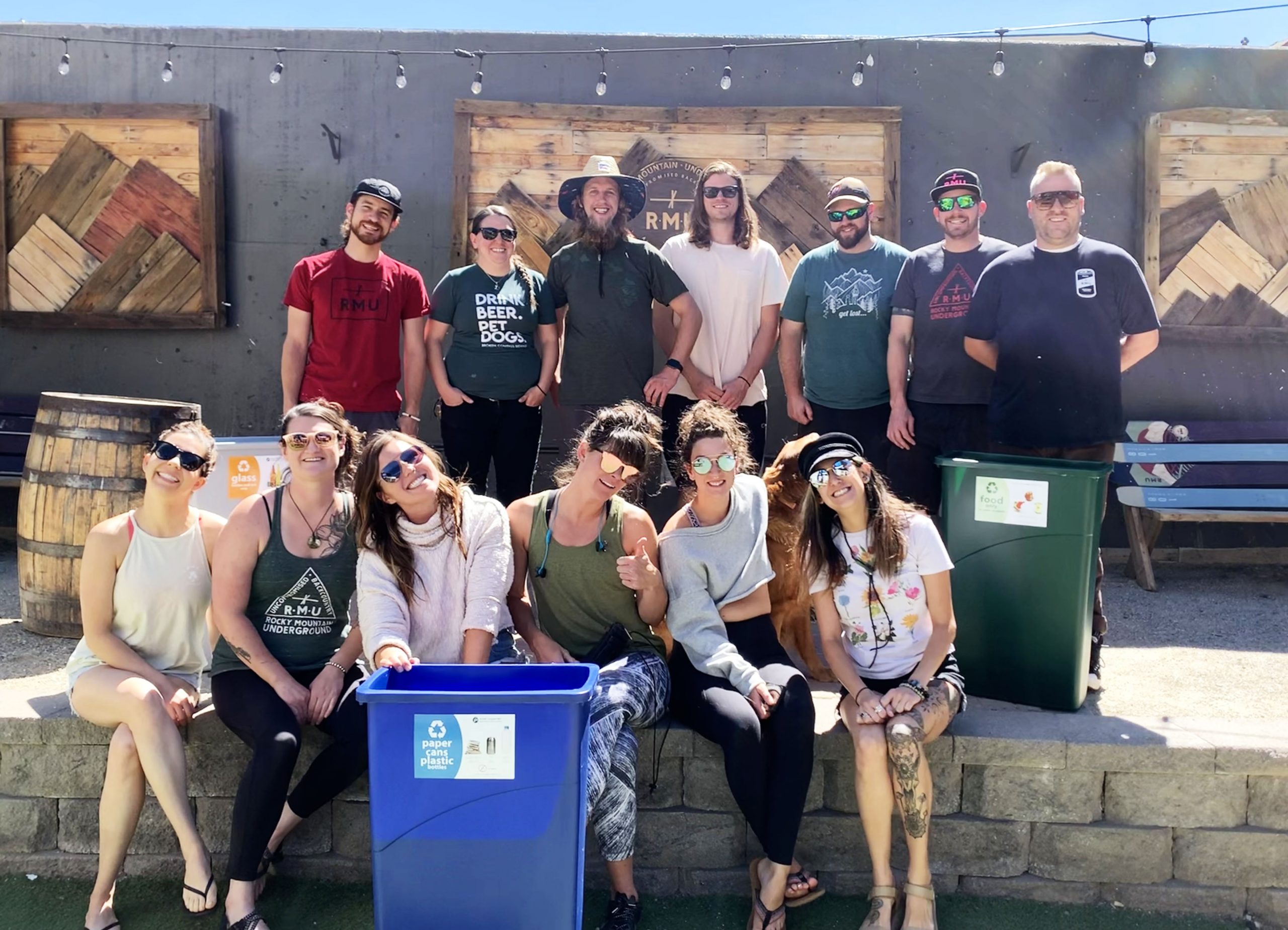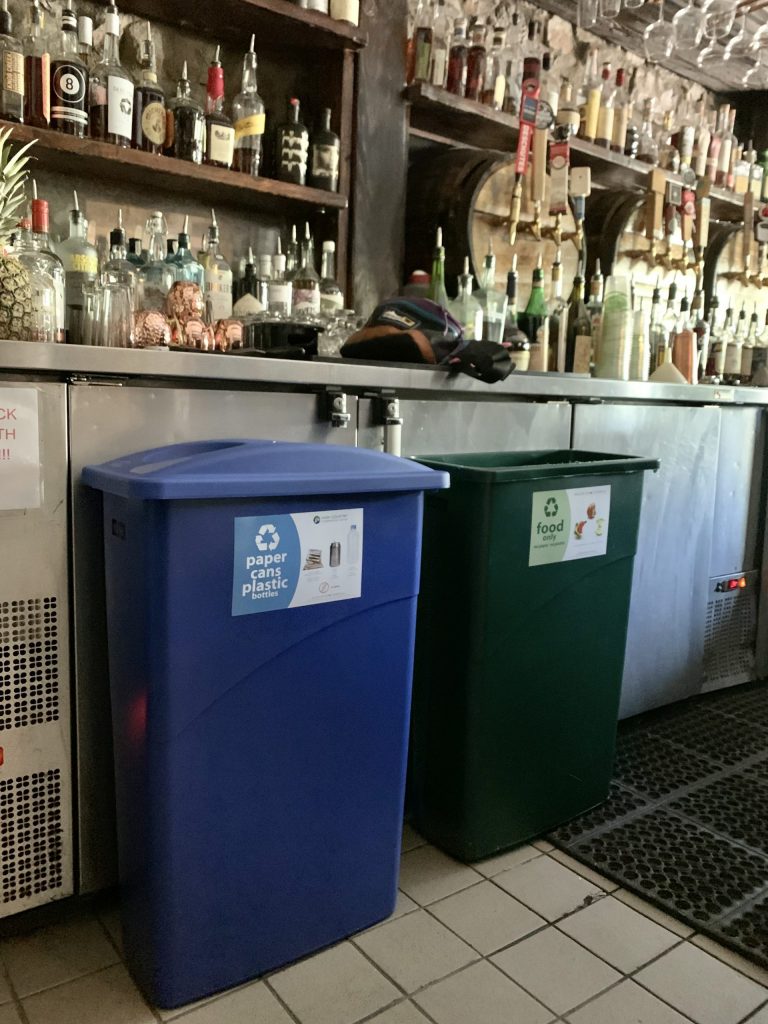
Dear Eartha, My company wants to create a zero waste goal, but once we do, how do we make it actually happen?
Zero waste is becoming a more popular business goal, which is a great sign for our community as we strive to send less waste to the landfill. For folks who haven’t heard of zero waste before, it has to do with diverting waste away from the landfill and instead composting, recycling, or finding options for reuse. The term is a bit misleading since achieving zero waste is generally accepted to mean a 90 percent diversion from the landfill rather than producing no trash at all. For businesses, there are several strategies you can implement to work towards zero waste. The first step is to do a waste audit. Take your trash can, dump it out and sort through what can be reused, recycled, or composted. This will give you an idea of how much you could be diverting. You’ll also want to examine the materials in your recycle bin to ensure that you’re recycling correctly! Second, make sure you have recycling bins in all common areas or even every place there’s a trash can. Use signage and periodically train employees and custodial staff on the importance of your zero waste goals. Locally, the High Country Conservation Center has great resources to help you get off to a great start – from information about what’s recyclable in Summit County, a recycling toolkit, and even on-site sustainability assessments and free coaching.

Another important component to making zero waste a reality is by reviewing your purchasing decisions. How do the supplies you purchase contribute to your zero waste goal? To start, use reusable products wherever possible. So, if your office has a coffee maker, instead of buying disposable cups for coffee provide ceramic mugs that can be washed and reused. This way you do not produce any unnecessary trash. Next, consider buying products that contain recycled content. This not only promotes the recycling industry but saves energy, water, and natural resources. Paper products are a great place to start and are readily available. And what about “compostable” products? Do these help to green the workspace? Although well-intentioned, these products have some unintended consequences, especially in our arid mountain environment. Do not buy “compostable” products thinking that you can compost them in Summit County, even if they carry certifications from organizations like the Biodegradable Products Institute (BPI). Products with these labels require a biologically controlled indoor environment to break down. While the Summit County Resource Allocation Park has a composting operation, it is outdoors. Think of it as your backyard compost pile at an industrial level. Across the nation, products labeled as compostable end up in landfills because they do not break down fast enough or completely in less predictable, outdoor environments.
Furthermore, these “compostable” products to not biodegrade any faster than other biodegradable products in a landfill. These products are designed to be stable, and in a dry, air-tight environment like a landfill, they should not break down. More concern surrounds the inputs that go into making these products. It’s convenient to think that products made with corn must be better for the environment, but we also need to consider the fertilizers and pesticides that went into growing the corn. On the other hand, sugar-cane-based materials take what was once a waste product – the fibers leftover after juicing the cane – and turn these into Bagasse, which is a paper alternative.
The takeaway is that not all products are created equally, and it can be extremely difficult to figure out what is best. What does that mean for your business? Stick to durable, reusable products, products made with recycled content, and limit composting to food scraps only. Hopefully, this helps answer your zero waste questions. As you start down the path of zero waste, don’t forget the three Rs – reduce, reuse, recycle. Always remember to try to reduce the amount of waste you produce in the first place, and reuse whatever you can. And don’t forget that the High Country Conservation Center is a great resource for all things waste reduction!
